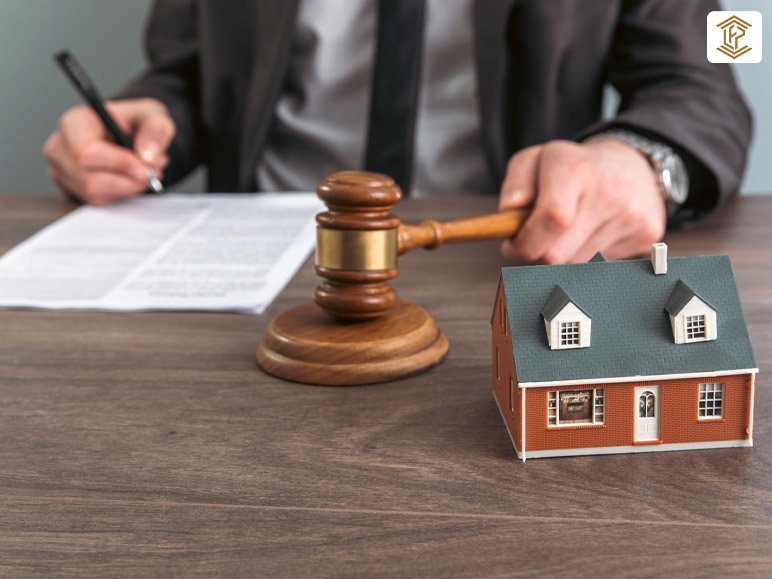Not every person is fully aware of the type of lawyer you will get help. And as a result, they frequently asked about what kind of lawyer do I need to sue my landlord. Dispute-related legal proceedings with a landlord can be distressing and complicated. It is reasonable for you to be informed of your rights as a tenant in case of a maintenance issue, break of contract, or lease dispute. Legal representation is of the utmost importance in situations where disputes arise and you are constrained to examine initiating legal proceedings against your landlord.
Roles Of A Real Estate Lawyer In Suing Your Landlord

This article discusses the various categories of lawyers who might be useful in representing you in a lawsuit against your landlord. These are the best options in the answer of what kind of lawyer do I need to sue my landlord.
1. Rights Of Tenants Advocates For Your Rights

Support from an occupant rights promoter might be available to assist with unjust evictions, discriminatory treatment, or substandard housing conditions. Lawyers who specialize in landlord-tenant disputes pay special attention to tenants’ rights that have been relinquished because of nearby, state, and government laws. One could hire them to assess their situation, get legal counsel on their rights, and stand in for them during negotiations or court proceedings.
2. Real Estate Lawyer: Expertise In Property Law

Legal issues involving real estate, such as leases and inhabitant contracts, are handled by state-certified lawyers. If you are involved in a dispute over the terms of your lease or are contemplating filing a lawsuit against your landlord for breach of contract under state law, a real estate attorney could be of extraordinary assistance. Because of their extensive information on property law, they are qualified to assist you with comprehending complex lease agreements and identifying any possible violations by your landlord.
3. Litigation Lawyer: Navigating Court Proceedings

A litigation attorney can offer you counsel right away if you and your landlord can’t settle the issue through negotiations and it appears that legal action is imminent. Lawyers who are adroit at resolving landlord-occupant disputes and who advocate for their clients in court. Thinking of what kind of lawyer do I need to sue my landlord? A litigation attorney will be close by all through the legal process, from crafting the initial complaint to representing you in court trials.
4. Personal Injury Lawyer: Addressing Health and Safety Concerns

If your injuries were the result of your landlord’s negligence, you might need to hire a personal injury attorney. Inadequate workplace security might be a factor in various injuries, such as those involving toxic materials (such as lead paint or shape), physical assaults, break-ins, slips and falls, and different types of injuries. While gathering evidence to support litigation, a personal injury attorney will investigate the particulars of your case in order to assist you in obtaining the funds necessary to cover medical expenses, lost wages, and emotional distress.
5. Environmental Lawyer: Environmental Hazards and Code Violations
If your landowner has violated environmental regulations or caused harm to the environment, you might require the assistance of an environmental attorney. This might encompass activities such as air or water source pollution, disregard for building regulations and policies, or inadequate disposal of hazardous substances. Environmental Lawyers can assist you in holding your landlord responsible if their negligence or improper actions caused mischief to you or the environment.
6. Consumer Protection Lawyer: Fighting Unfair or Deceptive Practices
If you have reason to believe that your landlord has taken part in commercial activities that violate consumer protection laws because of their absence of honesty or integrity, you should seek the counsel of a consumer protection attorney. Still, thinking of what kind of lawyer do I need to sue my landlord. Just know the purpose then the hiring. Important to this gathering are explicit invoicing practices, deceptive advertising, and dishonest statements. Consumer protection lawyers have learned about consumer rights laws and can assist you with seeking money-related damages, injunctions, or other legal remedies to rectify the problems caused by your landlord’s activities.
7. Bankruptcy Lawyer: Landlord’s Financial Troubles
Financial difficulties or insolvency involving your landlord might affect your legal rights and alternatives. Tenants should seek the counsel of a bankruptcy attorney if their financial hardships impact their legal rights or living conditions, transpire, or if their proprietor declares bankruptcy. Consultation with an attorney typically enhances one’s comprehension of bankruptcy proceedings pertaining to rights, legal intricacies to be navigated, and measures to safeguard interests during this trying time.
8. Contract Lawyer: Reviewing Lease Agreements and Contracts
You must ensure that you completely fathom every one of the provisions outlined in your lease or other applicable documents before beginning legal proceedings against your landlord. Consulting with a contract attorney is a viable course of action if you need assistance examining legal documents for conditions or clauses that might affect your case. In addition, they might provide counsel concerning the enforceability of specific provisions and assist with the composition of interest letters or notices of termination. To clarify your legal situation and safely shield your rights, speak with a contract attorney immediately.
9. Housing Rights Organizations: Accessing Community Resources
Neighborhood occupant support groups and housing rights organizations offer indispensable services past legal aid. Tenants with housing-related concerns can obtain educational seminars, support services, and free or minimal legal assistance from these organizations. Contacting housing rights organizations offers various benefits, including access to vital information, networking opportunities with different tenants facing similar challenges, and additional support all through legal proceedings.
Conclusion

It is suggested that individuals who are considering legal action against a landlord consult with an attorney to address their concerns. Regardless of the current idea of the legal issue (occupant rights, real estate, litigation, and so forth), the result will be essentially influenced by the caliber of your counsel. Get an idea of what kind of lawyer do I need to sue my landlord?
An occupant can effectively navigate the complexities of landlord-inhabitant legislation by acquiring information on their inhabitant rights and consulting with a seasoned attorney.
Thoroughly assess your alternatives and ascertain that you are completely equipped to pursue legal action prior to initiating a lawsuit against your landlord.
Must Read :
- What Is A Personal Injury Lawyer?
- How Much Is A Lawyer Consultation Fee?
- How To Know If Your Lawyer Is Selling You Out?

